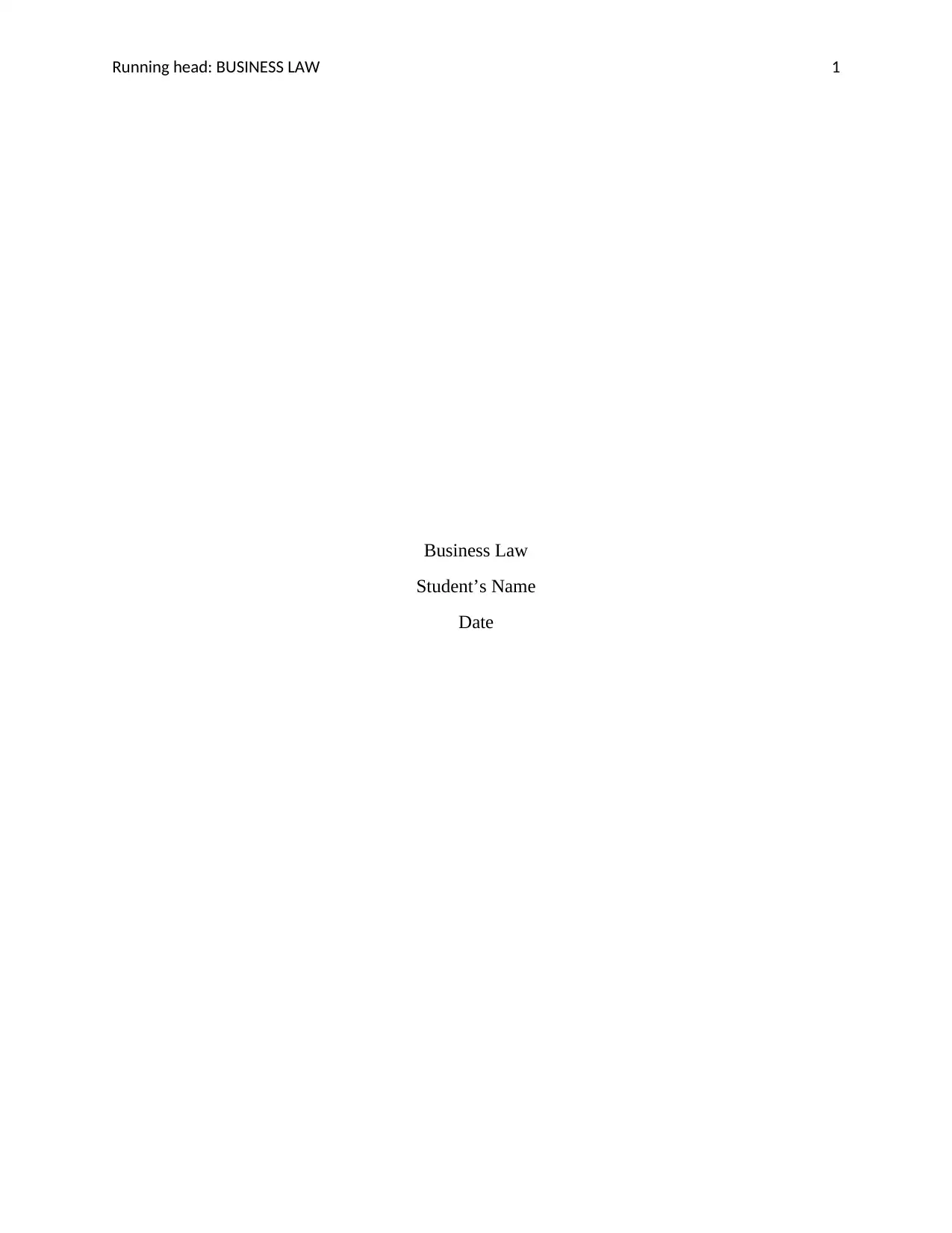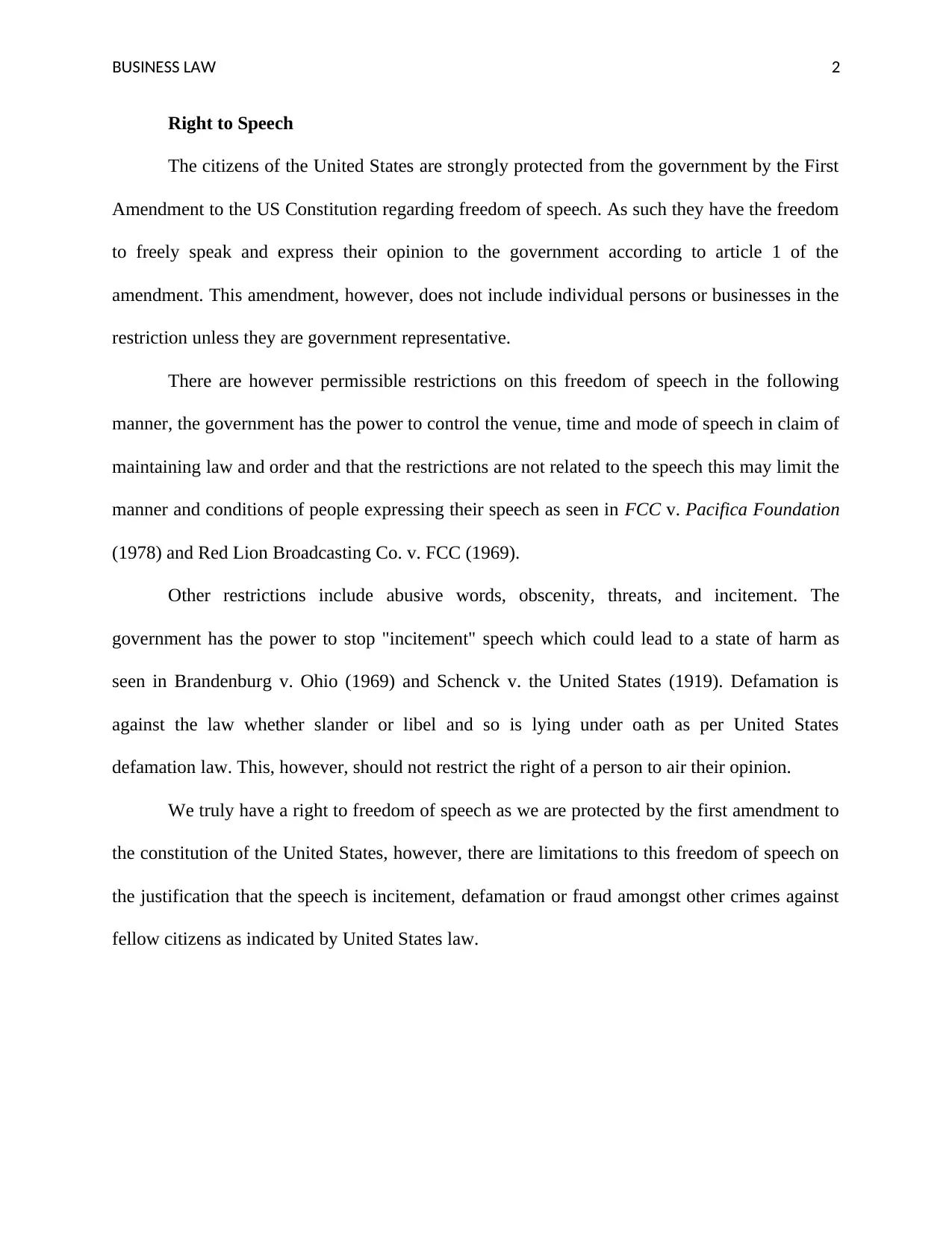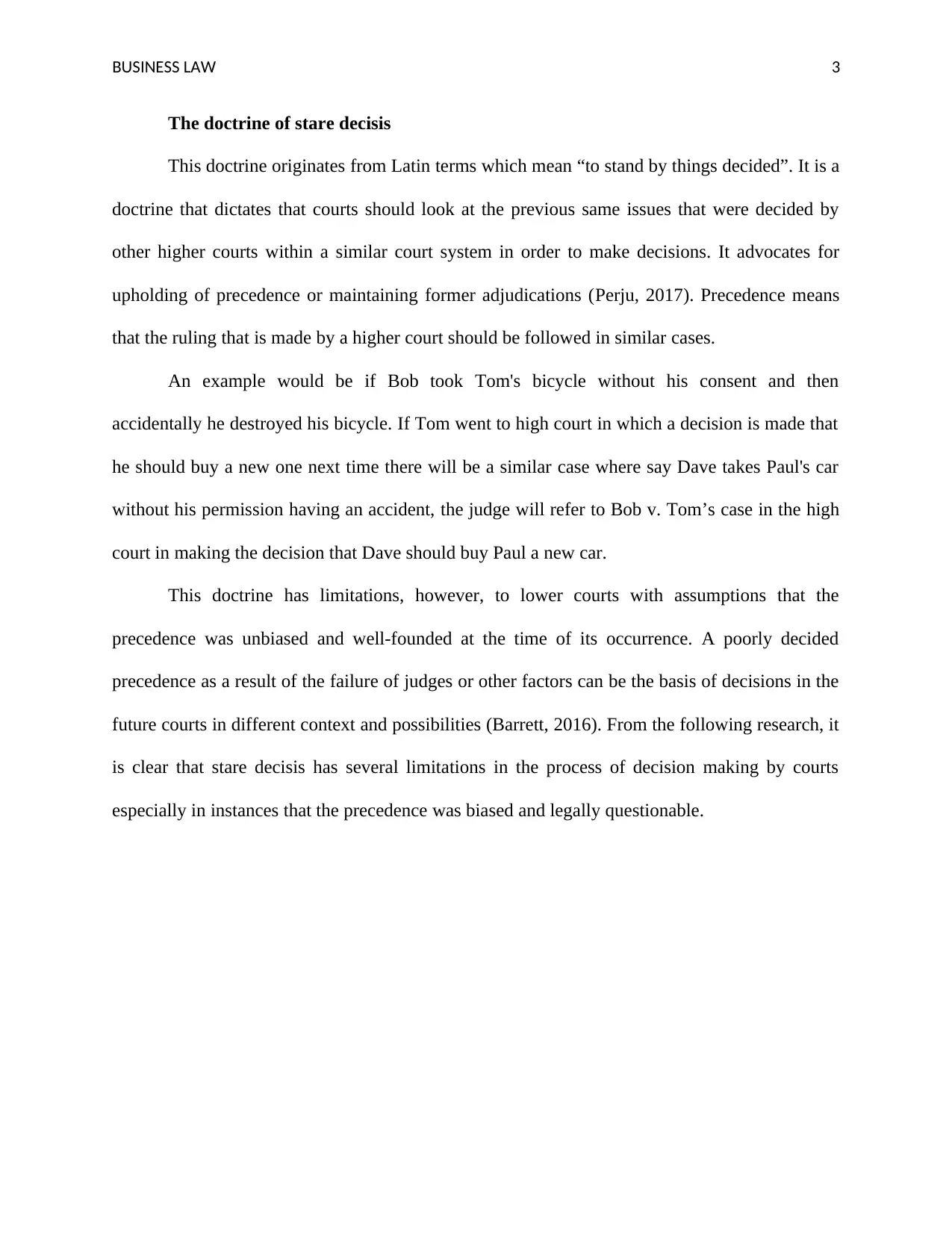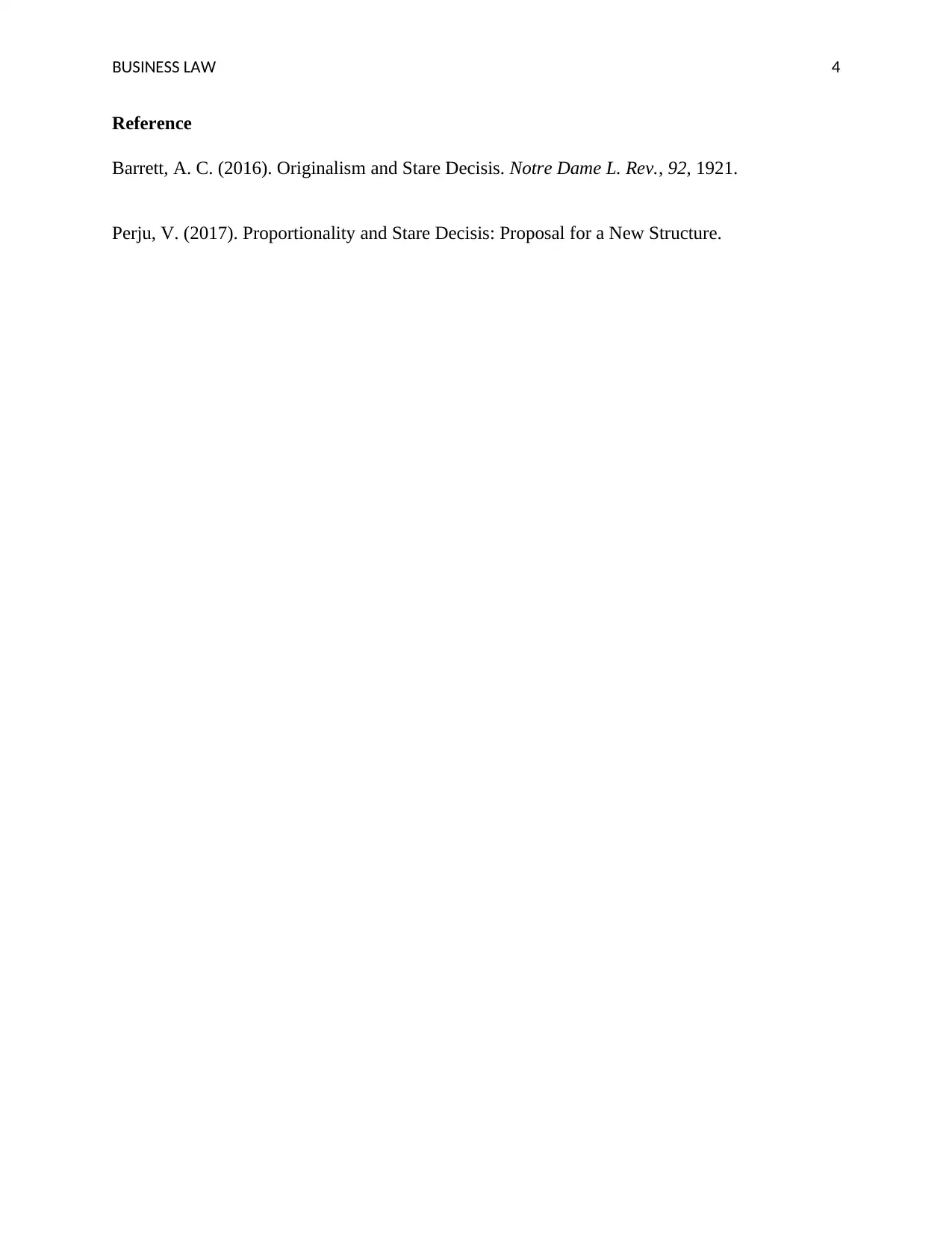Business Law: Freedom of Speech and Stare Decisis Report
VerifiedAdded on 2023/03/17
|4
|642
|86
Report
AI Summary
This report delves into the intricacies of business law, focusing primarily on the concept of freedom of speech as enshrined in the First Amendment of the U.S. Constitution. It examines the limitations and permissible restrictions on this freedom, referencing cases such as FCC v. Pacifica Foundation and Brandenburg v. Ohio. The report then transitions to discuss the doctrine of stare decisis, its origins, and its implications for legal decision-making, explaining its role in upholding precedents set by higher courts while also acknowledging its limitations, particularly when precedents are biased or poorly decided. The report provides a comprehensive overview of how these legal principles impact business operations and decision-making.
1 out of 4










![[object Object]](/_next/static/media/star-bottom.7253800d.svg)